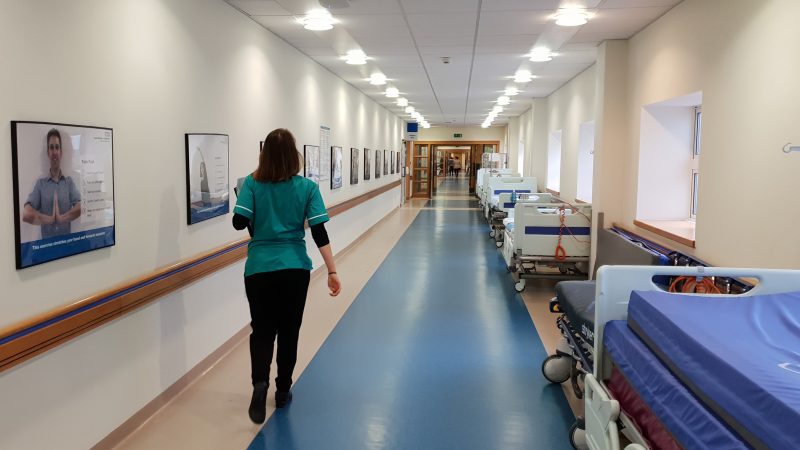
Today, more strikes than ever before are shaking the National Health Service. The deep crisis in our society is radicalising and unionising professional groups who would not previously have contemplated industrial action. Astonishingly, the British Medical Association and the Royal College of Nursing, historically among the most conservative of professional associations, are fighting back using the strength of industrial action and collective bargaining.
Some in the labour movement and party are joining picket lines and demonstrations offering solidarity and talking about the importance of Labour politics. Others in the party, despite broad popular support for health workers, are reacting with fear and disorientation.
Junior doctors and other health professionals at the beginning of their careers have never been particularly well paid, but after more than a decade of steep real-term pay cuts and punitive rates of taxation to repay student debt, soaring mortgages and rents and scarce and expensive childcare, their situation has become untenable.
The BMA reports a 26% collapse in junior doctors’ pay. The social partnership model assiduously promoted inside the NHS has collapsed. ‘Independent’ pay review bodies are being rejected by workers. And no amount of earnest lecturing on fiscal rectitude to impress the markets will deal with the real problems facing the workforce. To be blunt, it is time to end the austerity myth and get to grips with the reality facing more than a million NHS workers, their families and ultimately their patients. Already, young professionals are voting with their feet. In many cases more experienced staff are leaving as rapidly as new staff are recruited internationally.
The Socialist Health Association – midwife at the birth of the NHS 75 years ago – recognises that to deliver an effective public service we need staff who have a chance of a decent livelihood. The service needs to be resourced to an equivalent level to that achieved by the last Labour government, though without the ruinous private finance initiative deals, privatisation and fragmentation imposed by Labour’s market enthusiasts, subsequently amplified by the Tories.
Parliament has made attempts to evaluate the increased level of transaction costs introduced by the health market. We believe it can be counted in tens of billions. The marketisation of the NHS has failed us.
As the NHS struggles with horrific waiting lists of more than seven million, we know quick fixes for more than a decade of neglect are problematic. There is a significant lag between funding increases and more treatment. As we saw with the unstaffed ‘Nightingale hospitals’ during the height of the pandemic, the key shortage lies in skilled and experienced health professionals. Resort to the private sector merely worsens staffing levels in our NHS, as the private sector does not train its own staff. These health professionals are the ones rightly demanding fair pay.
Labour must stand shoulder to shoulder with those taking industrial action. We need to be able to convince them and their families that an incoming Labour government will take their plight seriously and resolve it.
In the short term, the very heavily fragmented, privatised and asset-stripped care sector needs to be brought into a new National Care Service. In this way, delayed discharges can be reduced relatively rapidly; this will have a real impact on NHS waiting times and lists.
The Socialist Health Association is holding its NHS 75 conference in London on July 1.



More from LabourList
Local elections: ‘Key council tests for Labour in each region’
Humza Yousaf woes deepen as Labour files no-confidence vote in government
‘History and poll leads suggest Labour can be bolder, even if it costs some votes’